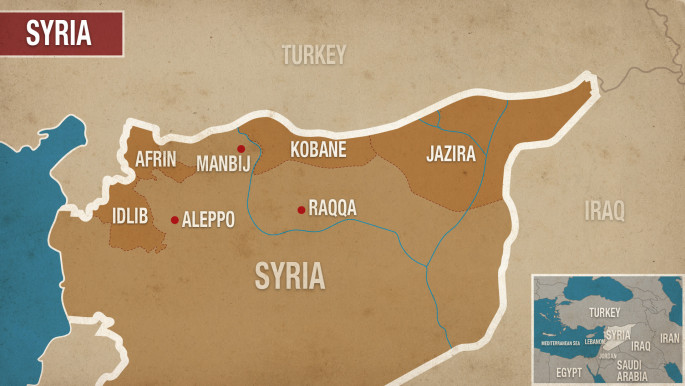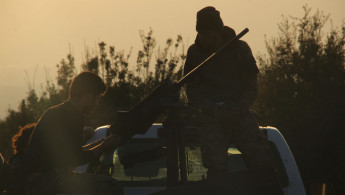Breadcrumb
Kurds uneasy over US silence on Turkey's Afrin assault
The Kurds' alliance with the US - a key supporter in the fight against the Islamic State group - is a growing concern among the fighters. Washington finds itself in a tenuous position between their Kurdish allies and its relations with NATO ally Turkey.
Afrin holds particular significance and is seen as part of an existential fight. The enclave was one of the first Kurdish areas to rise up against Syrian President Bashar al-Assad and is a base for senior fighters.
The campaign, which started 20 January, targets the US-backed People's Protection Units (YPG), which is considered a terrorist group by Ankara. Turkish authorities say that utmost care is being taken to not harm civilians in the operation dubbed "Olive Branch".
The UN has estimated that 15,000 have already been displaced in the offensive, and there are fears that a sustained military campaign could spark a "humanitarian tragedy" for civilians living on the Syrian-Turkish border.
"How can they stand by and watch?" Aldar Khalil, a senior Kurdish politician told AP of the US-led coalition against IS.
"They should meet their obligations towards this force that participated with them (in the fight against terrorism). We consider their unclear and indecisive positions as a source of concern."
Kurdish officials have also criticised conflicting and confusing statements made by Washington officials in public, with some US comments being viewed as tacit support for the assault.
 |
| [click to enlarge] |
Washington's priority is to prevent IS from resurging and to keep Damascus' ally - Iran out of the region - and Afrin is not central to these goals, with officials saying it will distract from the war on IS.
American silence however will not extend if Ankara sees through with its threat to expand the fight to Manbij, a Syrian town to the east where American troops are deployed alongside Kurdish forces that took the town from IS in 2016.
On Saturday, Turkey's Foreign Minister Mevlut Cavusoglu urged the US to "immediately withdraw" its personnel from Kurdish-held Manbij.
In a statement, the US-led coalition criticised the Turkish assault, saying, "increased violence in Afrin disrupts what was a relatively stable area of Syria. Furthermore, it distracts from efforts to ensure the lasting defeat of Daesh, and could be exploited by Daesh for resupply and safe haven", using the Arabic acronym for IS.
Turkey views the YPG as an extension of the outlawed Kurdistan Workers' Party (PKK).
The PKK, which has waged a war against the Turkish state for three decades, is designated as a terror group by Ankara, the United States and the EU.
Earlier in the week, US president Donald Trump urged Erdogan to "de-escalate" his forces assault on Afrin as he expressed concern about "the destructive and false" anti-US rhetoric emanating from Turkey.






![Anthony Blinken speech [Getty] Anthony Blinken speech [Getty]](/sites/default/files/styles/image_684x385/public/media/images/6263436E-8ACD-4D3C-9055-25A7BE79DD5A.jpg?h=d1cb525d&itok=fLHmHCRG)
 Follow the Middle East's top stories in English at The New Arab on Google News
Follow the Middle East's top stories in English at The New Arab on Google News


![Circassian man celebrating in Damascus 2024 [Getty]](/sites/default/files/styles/image_330x185/public/2189044702.jpeg?h=a5f2f23a&itok=7YgHXQgb)